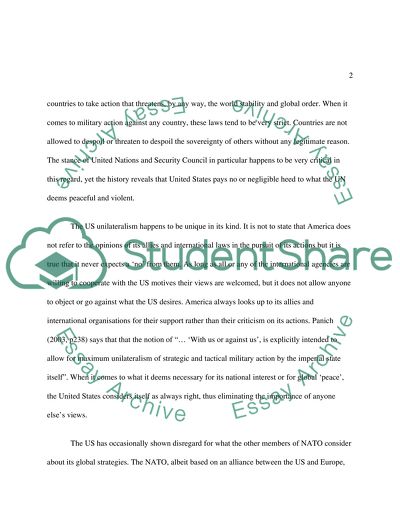Cite this document
(“International Relations: NATO, UN, social research Essay”, n.d.)
International Relations: NATO, UN, social research Essay. Retrieved from https://studentshare.org/miscellaneous/1522344-international-relations-nato-un-social-research
International Relations: NATO, UN, social research Essay. Retrieved from https://studentshare.org/miscellaneous/1522344-international-relations-nato-un-social-research
(International Relations: NATO, UN, Social Research Essay)
International Relations: NATO, UN, Social Research Essay. https://studentshare.org/miscellaneous/1522344-international-relations-nato-un-social-research.
International Relations: NATO, UN, Social Research Essay. https://studentshare.org/miscellaneous/1522344-international-relations-nato-un-social-research.
“International Relations: NATO, UN, Social Research Essay”, n.d. https://studentshare.org/miscellaneous/1522344-international-relations-nato-un-social-research.


